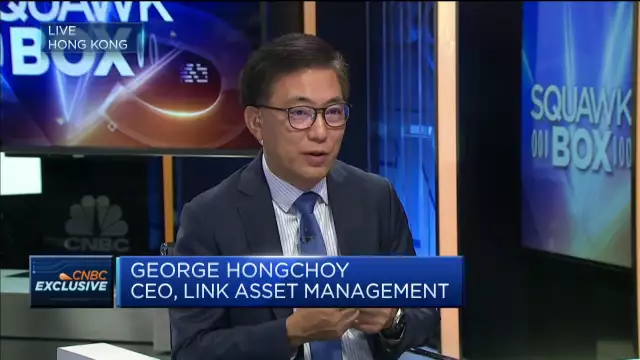Inside Brokerages’ Struggle to Find Talent
Like many industries in the U.S. at the moment, commercial real estate is struggling to find talent to fill open positions. The latest figures from the Bureau of Labor show that there are 11.2 million job openings at the moment, which translates to two open jobs for every unemployed person. Among all commercial property firms around the country, 60 to 70 percent said they are facing a talent shortage. It’s a problem for brokerage firms large and small, and it’s been a problem even before the pandemic. “The labor market is still tight, no matter what the job is,” said Jane Curran, JLL’s head of talent acquisitions. The changes they’re seeing are the same issues every company is seeing: employees prefer to work from home more and want flexibility in the workplace.
In their effort to bring in talented candidates, recruiting leaders at commercial brokerage JLL are taking a wide net approach. Along with cold calling, LinkedIn, and good old-fashioned networking, the firm is rolling out the red carpet for prospective hires in order to stand out among a crowded field of job openings. “Candidates want to be treated like consumers,” Curran said. “They want to have a consumer-like journey to a company.” That means working harder on defining your brand as a company and answering questions about who you are and what your purpose is. “Commercial real estate isn’t a consumer brand, so it’s not necessarily that recognizable,” she said. “So if you want to attract more people to the industry, you want to try harder.” A recent report from Deloitte suggested recruiters at CRE firms should use shorter descriptions in online postings, make mobile applications more user-friendly, and use automated interview scheduling products to make it easier to sync calendars and find open interview slots.
Monique Rutkowski, who also works in talent acquisition at JLL, said recruiting has become more about “outward-facing” relationships. She spends a lot of time building relationships with potential candidates, in some cases spending up to 2 years talking with someone who may not be ready to move yet. But once they are, she hopes the legwork will make them think of JLL first. “We have to move much quicker in the talent market, because the talent we’re engaging with go off the market in a day, with multiple offers.” Of the company’s 500 interns this summer, 137 are brokerage interns. Curran said their strategy focuses on being a constant proactive model rather than reactive. “We try to create a culture of recruitment. We don’t want to turn these nozzles off.”
Leaning on tech
Since 2010, the top 10 largest commercial real estate leasing firms have invested $2.7 billion in more than 65 companies, according to CRETI. As commercial brokerages continue to adopt new technologies, some firms are looking at tools to help them recruit talent. CBRE has partnered with Avature, a software platform for human resources management, to automate their recruitment in Asia. The move has helped the firm hire more people and encouraged more diversity. According to Avature, leveraging analytics helped CBRE bring in 10 percent more female candidates for positions.
Automation is a good step for companies that want to streamline their recruitment processes and reduce cost-per-hire. It can also help avoid bias by recruiters, something that has continued to be a problem in the U.S. One way AI has been useful in the recruiting process is to quickly sort through resumes and pick out qualified candidates. On the other hand, studies have also shown that automation can reinforce biases toward candidates. While there are mixed messages out there about it’s efficacy, one researcher in a recent study concluded that “even if AI is not perfect, it is fairer and more effective than human recruiters.” Curran and Rutkowski of JLL said technology is “at the core” of what they do, and it connects them with a diverse pipeline of talent using market analytics and a candidate relationship management tool.
Rutkowski also works with partnerships JLL has with a handful of colleges and has spent considerable time at diverse universities and historically black colleges and universities in working to recruit entry-level talent. It’s an initiative that many commercial real estate firms have put effort into in recent years in trying to diversify an industry that historically has been lacking. According to a wide-ranging ULI study from 2021, 92 percent of firms surveyed said they have some type of Diversity, Equity and Inclusion initiative. Since going public in 2018, Cushman & Wakefield has made a big push toward recruiting from a variety of colleges and universities in order to bring more diversity to the firm but acknowledged the company still has “a long way to go.”
Besides being used as a tool to find new talent, tech is also being used as a selling point to seal the deal with new hires. Major brokerages like JLL are touting their software that brokers use in leasing and selling office space as what will set them apart–especially if that technology can better facilitate working from home or hybrid work. Blackbird is JLL’s proprietary software that allows brokers to see real estate in a 3D space. The visualization application can analyze clients’ needs and match them with properties, and offers virtual tours of properties in markets across the country. “I think every industry is facing that barrier of people wanting flexibility of working from home,” Rutkowski said. “Tech, culture, platform, development opportunities–those are all areas that I’m seeing candidates having greater interest in knowing about.”
Culture shift
As brokerages fight to bring new talent aboard, some brokers are questioning whether they might jump ship, with the uncertainty over the future of the office constantly hanging over their head. Adam Lasoff, a managing director in the capital markets group at JLL’s San Francisco office, believes in the future of the office and that it’s here to stay. But he’s concerned about working in an “overbuilt” environment where buildings could potentially lose a lot of their value. “Oftentimes when I go down the rabbit hole I think, am I doing the right thing in my career? Should I be pivoting to something more desirable?” Lasoff said in a NAIOP San Francisco podcast last month.
While many workers are happier coming into the office less, for brokers who are just starting out in their career, it pays to show up every day. The early years as a broker are a crucial time for mentorship and networking, and without that, it’s a harder road ahead, said Amanda Bates, vice president and portfolio director at EQ Office. “At the end of the day in real estate, your connections are your currency,” said Bates on the same podcast. While in-person events have made a big comeback in recent months, for many young brokers, the past couple of years have been isolating. “A lot of people in this industry for just a few years have missed out on a big component of this business,” Lasoff said, adding that demand for information sessions and networking from young people is “off the charts.”
There’s also been a lot of movement between firms, with brokers swapping one brokerage for another, since the earlier days of the pandemic. The hottest sectors over the past two years, industrial and multifamily, have certainly been looked at more favorably by brokers, said Avison Young Tri-State President and Principal Dorothy Alpert. “Wherever we have an industrial presence, those brokers are hitting it out of the park,” she said, adding that it’s been a tougher road for office brokers, as so many tenants are shedding space. “Our brokers are busy just having to adapt the kind of work that they do.” One positive about employees having more leverage in today’s landscape is better pay, more benefits, and even signing bonuses. “Salary increases have been dramatic,” said CRE Recruiting principal and founder Allison Weiss. Among all private sector jobs, wages increased 4 percent in 2021, the largest increase in 20 years.
But even as opportunities abound for those in commercial real estate, the question of what’s to become of the office remains. Some have argued that the office is obsolete, while others have said it’s just evolving. Or as Airbnb’s CEO put it, if the office didn’t exist, would we invent it? “I think the office is a tool to make people more efficient, more productive, more collaborative,” Bates said. “Yes, this is all self-serving, we’re in the office industry, but when I hear some companies make these work from home comments, you have to take it into perspective that that’s what’s in the best interest of their company. But at the end of the day, that ignores efficiency, productivity, collaboration, mentorship–those are all important and I think the office plays a big role in that.”
What gives some in the industry hope for office’s future is that some of the world’s biggest companies have taken a firm stance on returning to the office. While many organizations have moved forward with hybrid plans, companies like Goldman Sachs and Netflix have said that they consider the office the primary workplace. And then there’s Tesla CEO Elon Musk, who caused a stir last month when he sent an email to all his employees saying they should return to the office full-time or quit. “If people start going on that bandwagon it implies that you’ll see a lot more people going back to the office,” Lasoff said, referencing Musk’s ultimatum. “As leverage pivots to the employer, people will start going back to the office and we’ll be able to sell buildings.”
The future of the office market might still be undecided but the future of demand for talent in commercial real estate is not. Despite all of the headlines commercial property will continue to grow and will need a new group of professionals to manage and transact it. Tech will continue to play a big role in honing in on qualified job candidates, attracting prospective brokers to companies, and enabling employees to work from anywhere. But without a steady pipeline of new entrants into the industry, the struggle to fill job openings will continue.





